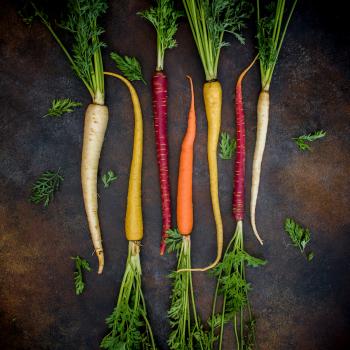 Walking on the sidewalk of Spokane, I read an email that made me stop still. I’d just left a reading of North of Hope on my first trip away from my husband and two young children, when I checked my iPhone, compulsively, as I do, having no one to debrief with in person, looking for some kind of connection through cell signals and electrons.
Walking on the sidewalk of Spokane, I read an email that made me stop still. I’d just left a reading of North of Hope on my first trip away from my husband and two young children, when I checked my iPhone, compulsively, as I do, having no one to debrief with in person, looking for some kind of connection through cell signals and electrons.
It was a warm spring evening, and I thought I’d find a good glass of wine along the river. I was the only one in a sweater, an old comfortable one I liked. Everywhere there were bare arms and shoulders, street musicians on sidewalks from which heat wafted like a smell, carrying the sounds of the saxophone player and three shirtless college-aged guys with beards playing ordinary objects as percussion.
It was an email with just a name in the subject line, the name of a long ago friend I’ve maintained occasional contact with. She had dinner at our home when she was at a work conference a year before, and sent a note when our second son was born a few months ago. Just a couple of weeks ago I’d had a note from her on Facebook saying she’d received her copy of North of Hope and was excited to read it.
I wrote a quick reply. “Exciting but a little overwhelming—love to you!” Now the email came from her husband. “Shannon, Julie passed away yesterday. She had been in a very dark place and could not climb out.”
I stood on the sidewalk in that warmth, in those sounds, and I could not move.
Julie and I became friends at Ft. Bragg, North Carolina in 1995. We were two of the only women officers in an attack aviation regiment. I was a pilot, and she was a staff officer.
We lived off post in the same condominium complex and trained together for our first marathon, one we picked because it was within driving distance and because it was flat: Kiawah Island, South Carolina. We ran it together, and I waited while she cramped up during the first ten miles, and then fumed when she sprinted ahead at the finish line.
It was not a perfect friendship.
You get to know someone well when you run together through miles of pavement, countless blisters, cramps and sweat, injuries and untied shoelaces, and excursions to hide Gatorade bottles in bushes at the halfway point if there isn’t a gas station nearby.
But I hadn’t known how deep was her battle with depression.
I know someone who wonders why it is we say a prayer for forgiveness every Sunday. “Most merciful God, we confess that we have sinned against you…”
“Some weeks I don’t think there’s anything I’ve done wrong,” she says, and she is a lovely person, and I think she is being honest.
“We have sinned against you, in thought word and deed, by things we have done, and things we have left undone…”
Julie and I shared stories of the guys we liked or didn’t. She brought me to a retreat weekend that opened my eyes in new ways to God, a God who knew me deeply, loved me deeply, forgave me deeply.
One night I stayed at her condo when a hurricane came through Fayetteville. I slept on the recliner and she on the couch, both turned away from the windows and sliding glass doors crisscrossed in masking tape in case they burst. It seemed like it would be better to go through a storm with a friend than it would be alone.
After Ft. Bragg, we were both stationed other places and stayed in some contact, making occasional visits to each other. She got married quickly and I didn’t have time to attend. I didn’t hear from her for a year after I lost my father and stepmother, and I decided that our friendship had run its course, and that might have been true.
Julie leaves two children and her husband and a large family of siblings and parents. When I checked Facebook, two of her family members had taken her profile picture as their own.
Recently I read a letter that Ted Hughes wrote to his son years after the death of his wife, Sylvia Plath (the irony does not escape me.) The real self, Hughes said to his son, is an inner child that each person has hidden beneath a carefully constructed facade. This is the self that meets the slings and arrows of fortune or misfortune. This self is what must truly engage, truly live.
But this self is unprepared. Sometimes the storms are too strong. Sometimes the race is too long.
And sometimes the specter of mental illness subsumes this self. This is what happened to Julie. The National Institute of Mental Health says that seven percent of the population experiences major depressive disorder. Less than half receive treatment.
Julie had been on disability twice in the past year, staggering under the weight of depression and anxiety.
“When you develop a strong divining sense for the child behind that armour,” Hughes wrote, “you find that everybody becomes, in a way, like your own child.”
It was not a perfect friendship. But what relationship is? Julie was my friend. She was my neighbor. Should she have been like my child? Should I have divined deeper?
There are times when we can only lament. We remember that Good Friday comes before Easter. We wait in the pain. What should I have done?
This is where I pray: “Most merciful God, we confess that we have sinned against you.” This is where I pray: Kyrie eleison, Lord, have mercy.
I pray for her, and for her husband and daughter and son. I pray because I could not run with her during her struggle. I try to remind myself each day to pray for those who do not have the strength. To remind myself that those people, at times, are all of us.
Kyrie eleison. Lord, have mercy.
Shannon Huffman Polson is the author of North of Hope: A Daughter’s Arctic Journey. Her essays and articles have appeared in a number of literary and commercial magazines including High Country News, Adventum, Cirque Journal and Alaska and Seattle Magazines. She can be found writing or with her her family in Seattle or Alaska, and always at her website, Facebook, and Twitter.











